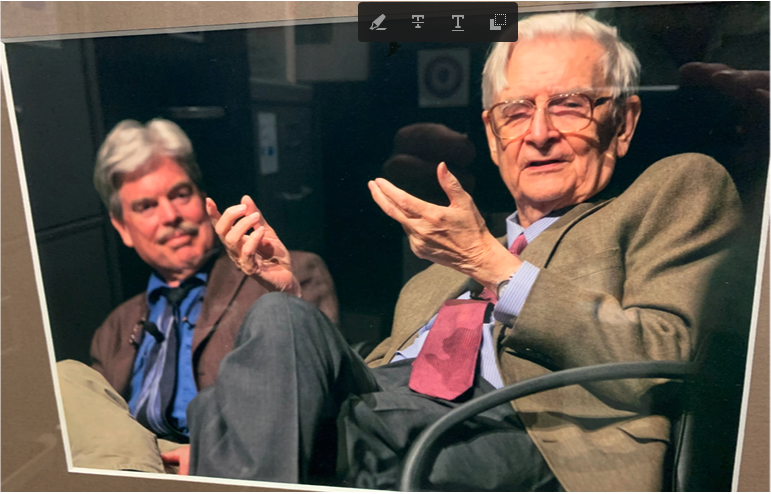Originally published in Flicker Flashes, the Alabama Audubon Newsletter, Spring 2022.
Alabama’s Gift—Edward Osborne Wilson (1929–2021) Celebrating the legacy of a conservation legend
by Jim McClintock, PhD, Endowed University Professor of Polar and Marine Biology, UAB Department of Biology, Board of Advisors, Half-Earth Project
Alabama arguably lost its most famous son on 26 December, 2021. E.O. Wilson, a once-in-a-generation biologist and gentleman-scientist passed away in Burlington, Massachusetts, at age ninety-two. Others might argue that Truman Capote, Harper Lee, or Hank Aaron are more famous Alabamians. Yet, I believe if we survive what Wilson coined “the bottleneck,” wrought by anthropogenic habitat loss, air and water pollution, and global climate change, his life’s teachings will have played a role in the very survival of humanity. Hard to top that on an Alabamian résumé. Ed Wilson loved Alabama. I know because he reminded me of his love affair with Alabama each time we crossed paths. It was evident every time he gleefully kicked over a fire ant mound or smugly smiled as he dug in to his BBQ sandwich. Ed said he was a southerner that went north to work. I know as an academic that when Harvard calls, you go—few arguments there. Nonetheless, despite his fondness of a particular table in the back of a restaurant in Cambridge where he went to write, if anyone appreciated the intrinsic value of Alabama’s people and natural resources, its diverse geology, plants, invertebrates, fish, and yes, marine and terrestrial birds, it was Ed Wilson.
Ever the mentor, whether I was visiting Ed at Harvard or in Birmingham, he would remind me that my career as a biologist studying the biological impacts of climate change, and as an author of popular books (Thank you, Ed, for greasing those skids) and a public lecturer, was best spent in Alabama. Nowhere else, he would say, was there a fiercer call to enrich a public understanding and appreciation of nature. In his later years, Ed’s targeted focus on Alabama intensified, and he leveraged our state’s truly exceptional biodiversity to plant the seeds of “biophilia” (Ed’s concept of our inherent love of nature). The seeds he planted have taken root in Alabama’s students, teachers, scientists, corporate leaders, politicians, and laypersons alike.


(L-R) Jim McClintock, E.O. Wilson
A gifted spokesperson for global science and a prolific author, Ed published over thirty books, sixteen of which were published after he turned seventy and two of which received the Pulitzer Prize for non-fiction. A fishing accident rendered him blind in one eye, and so with limited vision he focused on what he called “the little things.” In addition to becoming the world’s authority on the biology of ants, Ed’s lifetime contributions to conservation biology and evolution included the fields of Island Biogeography and Sociobiology, the latter being the study of the genetic basis of social behavior in animals. He received an astounding 150 or more national and international awards including the Crafoord Prize awarded by the Royal Swedish Academy of Science, the equivalent of a Nobel Prize if awarded in the field of Biology. These awards will be housed in Tuscaloosa at the University of Alabama, his alma mater, while his life’s writings are to reside in the Library of Congress. Members of Alabama Audubon have much to admire in the legacy of a tall, skinny kid, born in Birmingham, raised in Mobile, Alabama, and despite heading north, a southerner at heart. E.O. Wilson catalyzed a global appreciation for the fragility and life-sustaining nature of earth’s biota. Let us heed his call to action and ensure that Alabama, Ed’s spiritual home, becomes a shining example of nature’s sustenance.

